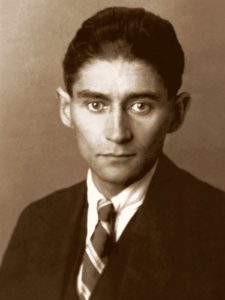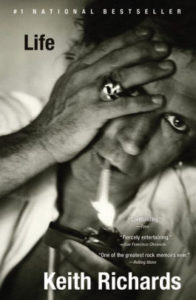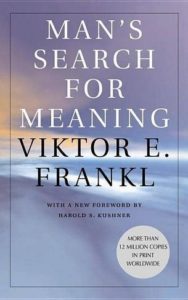» posted on Thursday, July 7th, 2022 by Linda Lou Burton
Gomer’s Phrase
Originally Published July 10, 2020 by Linda Lou Burton posting from Little Rock, Arkansas – It seems to me there are only two kinds of people in the world. It doesn’t matter about race or religion; doesn’t matter about one’s IQ or socioeconomic status, family background, or birth order. Nor does it matter about height, weight, age, gender, or sexual orientation as we consider which “kind” of person someone is. Ourselves included, of course.
 It’s simple. Psychologists might call it “outer-directed” or “inner-directed.” Or you can put it this way: Does a person rely on someone (or some thing) else for happiness; blame someone (or some thing) else for unhappiness; and wait for things to happen, either way? Do outside circumstances dictate whether a day is good or bad? Or does a person roll with the punches, adjust to the happenings of the world, and move ahead, regardless? “Life is like a box of chocolates,” Forrest Gump told us, in sweet and simple tones, “You never know what you’re going to get.”
It’s simple. Psychologists might call it “outer-directed” or “inner-directed.” Or you can put it this way: Does a person rely on someone (or some thing) else for happiness; blame someone (or some thing) else for unhappiness; and wait for things to happen, either way? Do outside circumstances dictate whether a day is good or bad? Or does a person roll with the punches, adjust to the happenings of the world, and move ahead, regardless? “Life is like a box of chocolates,” Forrest Gump told us, in sweet and simple tones, “You never know what you’re going to get.”
“Surprise, surprise, surprise,” was a phrase made popular by Gomer Pyle, as life in the little town of Mayberry filled our TV screens in the 1960s. Jim Nabors played the role of Gomer for 23 episodes on The Andy Griffith Show between 1962-64, but Gomer’s Phrase stayed around.
In the movie Forrest Gump which came out in 1994, Gomer’s Phrase can be heard on a TV in the background as Forrest (Tom Hanks) plays table tennis after being injured in the Vietnam war. And he’s really good at it, even after getting shot in the but-tocks!
Surprise, surprise, surprise. You never know what you’re going to get.
The “surprise” of COVID-19 has me reading, alphabetically, the entire booklist created by students at the Clinton School of Public Service, as I choose to remain quarantined at home. The authors of the last four books, from varying time periods, struck me with their wide swings of attitude to circumstances.
 Franz Kafka (1883-1924) was a German-speaking Bohemian novelist, and his writings are required readings in pretty much every college literature class. I first read Metamorphosis in college (where the lead character becomes a lowly bug), and now Letter to His Father, where a domineering father gets the blame for every anxiety and failure of his son’s life.
Franz Kafka (1883-1924) was a German-speaking Bohemian novelist, and his writings are required readings in pretty much every college literature class. I first read Metamorphosis in college (where the lead character becomes a lowly bug), and now Letter to His Father, where a domineering father gets the blame for every anxiety and failure of his son’s life.
 Keith Richards (1943- ) was co-creator of the Rolling Stones, born in England into a middle-class family. Keith loved music, got hooked on American blues in the 50s, dropped out of school to pursue his passion, and you know the rest. Fame, money problems, lawsuits, headlines, drugs. It was 2010 when he wrote Life, speaking frankly about the choices, and consequences, of the path he chose.
Keith Richards (1943- ) was co-creator of the Rolling Stones, born in England into a middle-class family. Keith loved music, got hooked on American blues in the 50s, dropped out of school to pursue his passion, and you know the rest. Fame, money problems, lawsuits, headlines, drugs. It was 2010 when he wrote Life, speaking frankly about the choices, and consequences, of the path he chose.
 Viktor Frankl (1905-1997) was an Austrian psychiatrist, and a Holocaust survivor. His book Man’s Search for Meaning gives little detail on his suffering in Auschwitz and three other concentration camps, but rather on the sources of his strength to survive. He was kept alive, he tells us, by looking to the future, and thinking about what other things he was meant to do in life.
Viktor Frankl (1905-1997) was an Austrian psychiatrist, and a Holocaust survivor. His book Man’s Search for Meaning gives little detail on his suffering in Auschwitz and three other concentration camps, but rather on the sources of his strength to survive. He was kept alive, he tells us, by looking to the future, and thinking about what other things he was meant to do in life.
 Elie Wiesel (1928-2016) was a Romanian-born writer, professor, and Holocaust survivor. His book Night was based on his experience as a Jewish prisoner in both Auschwitz and Buchenwald concentration camps. He focused on the pain, fear, and suffering he endured. He tells us that at one time he cried out to God: Blessed be thy name? Why would I bless God? He created Auschwitz!
Elie Wiesel (1928-2016) was a Romanian-born writer, professor, and Holocaust survivor. His book Night was based on his experience as a Jewish prisoner in both Auschwitz and Buchenwald concentration camps. He focused on the pain, fear, and suffering he endured. He tells us that at one time he cried out to God: Blessed be thy name? Why would I bless God? He created Auschwitz!
See what I mean? How very odd, I’m thinking, that out of four books in a row, two authors focus on inward strengths; two look to the outside for blame. Kind of like what’s going on with “How To Solve The Problems Created by COVID-19 Around The World.” Every newscast or email I get is either focused on BLAME (Whose fault is this terrible thing?) or SOLUTION (How do we deal with this problem?).
Most, I’m sad to say, play the Blame Game. And then there is Head in the Sand. That’s the repetitive phrase, “Just wait. This will all be gone by next month.”
Surprise, surprise, surprise.
